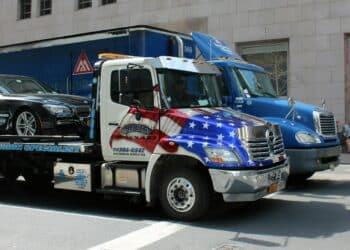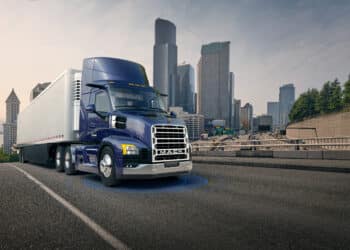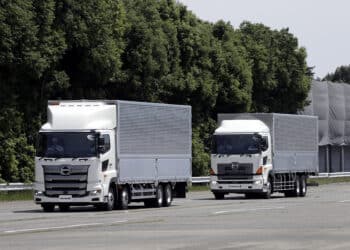Fleet management and leasing firm Fleet Advantage has launched an EV leasing program designed to make EVs as affordable as diesel tractors as the industry transitions further to alternative fuels.
A regular Class 8 tractor costs between $150,000 and $170,000, while an EV costs closer to $450,000, including the unit, associated infrastructure and other related costs, Brian Antonellis, senior vice president of fleet operations at Fleet Advantage, told Equipment Finance News.
In addition, the cost to transport goods with heavy-duty tractors is about 114% higher for EVs than diesel, according to a May 8 report by Ryder System.
Fleet Advantage aims to help customers overcome the cost barrier with its EV Path leasing program, which was introduced Sept. 17 at the IAA Transportation 24 Conference, and aims to lower EV costs, making them comparable to diesel units, Antonellis said.
“When they place an order with us for a large group of diesels, we’ll go ahead and give them an EV in that order, and by giving it to them, we will charge them the same capital cost of a diesel tractor,” he said. “Instead of the $450,000 price tag, they’ll pay their $150,000 to $170,000 price tag that will help them get into that EV space.”
Fleet Advantage future
For Fleet Advantage, it is an entry point to transition fleet customers to alternative fuels and develop strategies along the way, Antonellis said.
“The first step is the most difficult in getting into EVs,” he said.
“To learn to figure out what it looks like, to figure out how you’re going to integrate it into your roading, and by eliminating that need to pay an increased cap cost, we’re making that easier for our partners to be able to make that step,” Antonellis said. “The value for Fleet Advantage is we want to be there from the beginning with alternative fuels and EV, so as that space expands and grows within their fleet, we’re able to still be that partner that they have today on the diesel side and with alternative fuels.”
Meanwhile, Fleet Advantage is already working with fleets — including “a large distribution company everybody would know the brand name of” — to help the financials meet corporate sustainability goals, he said.
“This one is a pathway to EV, but we’re really challenging ourselves to create a pathway for alternative fuels, and we do that by removing hurdles … ,” he said. “The pathway to that alternative fuel that we’re eventually going to end up in … there’s going to be a shift, and we need to help our customers navigate that shift.”
The shift to alternative fuels has started in the transportation industry, but with 25% of fleet owners not seeing the value of alternative fuels, there are challenges ahead for the industry, Antonellis said.
2027 fleet pre-buy
One such challenge is the pre-buy of new vehicles ahead of 2027 as the California Air Resources Board and the Environmental Protection Agency adopted updated NOx emissions standards that place emissions restrictions on heavy-duty commercial vehicles. Under the restrictions, fleets will need to purchase compliant vehicles, which are almost entirely zero-emission units, before 2027.
“That’s all going to blend in with a 2027 pre-buy that’s going to disrupt diesel, so be planning now for the next three to five years, or else you’re going to have significant challenges getting traditional diesel,” he said. “You’re going to be behind on the EV, and it’s going to make it very challenging to do business in some of the states that are out there.”
Click here for more information and to register for the free webinar “Used equipment financing in 2025 as markets normalize,” taking place on Tuesday, Oct. 22, at 11 a.m. ET.









